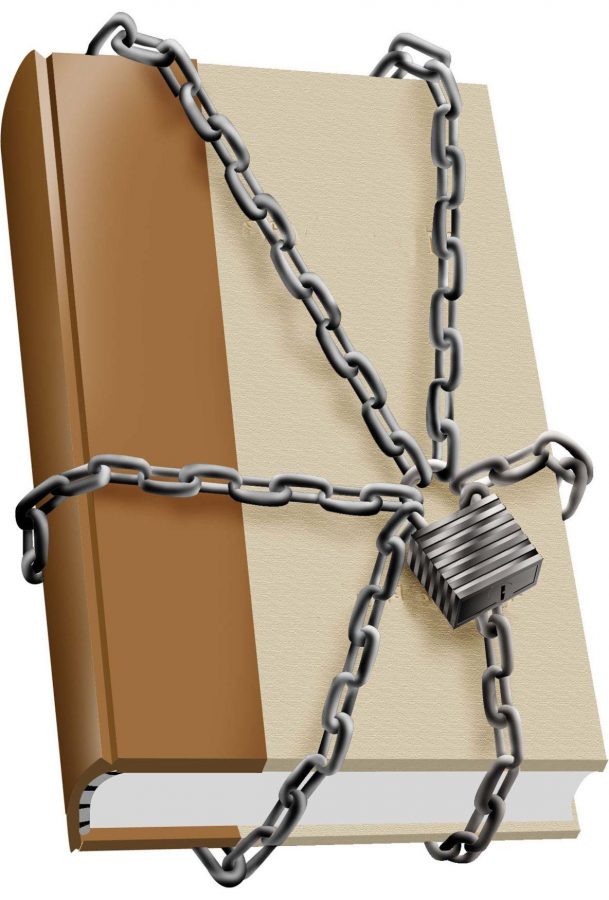Banned books: Our best writing?
October 8, 2014
The recent coming and passing of Banned Books Week left an ongoing debate in its wake. Nationwide, conflict continues between librarians, academics, book-lovers, writers and school administrators. And don’t forget oversensitive parents: adults who prefer to have their children believing in talking, bow tie-wearing cats causing Dr. Suess-created havoc rather than be exposed to the real world of slavery, poverty and derogatory words.
Through the years, school districts have banned certain books they feel are inappropriate for students.
But some believe banning books is a violation of constitutional rights, while others, such as Kearney Hub writer Rick Brown, say books are “one of the most harmless objects in the universe. A bunch of paper wrapped up in a marketing package.” Some argue that children need to be protected from the perils of the world. Some counter-argue and say the world is filled with sex, violence, drugs, discrimination and hatred. Isn’t it best to learn all that now rather than be shocked later?
As an avid reader, writer and book collector, I understand how words and ideas printed on 4×6 paper and unified by glue and plastic can inflict thought, provoke emotion and bring about change, whether it be in one person or millions of people. And, perhaps, a 10-year-old is not ready to think about the BDSM and sexual practices that fill the recently challenged — and recent bestseller, might I add — “Fifty Shades of Grey.” But challenging the book one week only to have it acclaimed by celebrities the next not only entirely defeats the purpose of banning a book, but makes banned books more accessible.
For many writers, dating from Mark Twain to the modern day, it has become a goal to have a book banned. Because, as displayed by the banned children’s book “And Tango Makes Three,” having a book banned not only boosts sales — the whole “wanting what you can’t have” deal — but it may be the only indicator we have left of good writing.
Evoking any response other than the one-second-long “oh, that was interesting,” means the writer did something commendable. He or she got somebody’s attention, challenged some archaic notion of a contemporary social norm and, most importantly, made readers think in a way that they never thought before.
For a moment, rather than considering entire books, think about columnists who write on political or social issues. Scroll through TIME Magazine’s website, The New York Times, Slate.com or The Washington Post. Each outlet has published articles and columns about the same exact thing — how the film adaptation of “Gone Girl” differed from the book. This is OK because they all cover recent events in the nation and in the world.
But if you even just read the first paragraph of the articles, they all say the same thing.
They lack original thought, an interesting angle or controversial and thought-provoking claims. They’re pieces by journalistic robots, clinging to what the rest of society says, typing into their laptops, sending articles to editors and collecting their paychecks without inventing. Yes, they avoid the angry email from a reader who so strongly disagrees with them that they took the time to write and, yes, they can muddle through a writing career like that.
Perhaps this is why the United States has seen a decline in newspaper, magazine and book sales. Perhaps it is why writers are taught by teachers to shove important information into the first paragraph of their pieces — because most people won’t read beyond that. Because writers are all saying the same thing, Internet and social media — where there is complete and often anonymous freedom to say whatever you want — wins the competition for attention.
So despite the somewhat confusing banning of, and consequent celebration of, banned books, I applaud the very few writers who make it on the list. I can only hope that, as a society, we start banning other forms of literature: controversial opinion columns, racy listicles and sexually overt news articles.
Write to Jess at [email protected]








